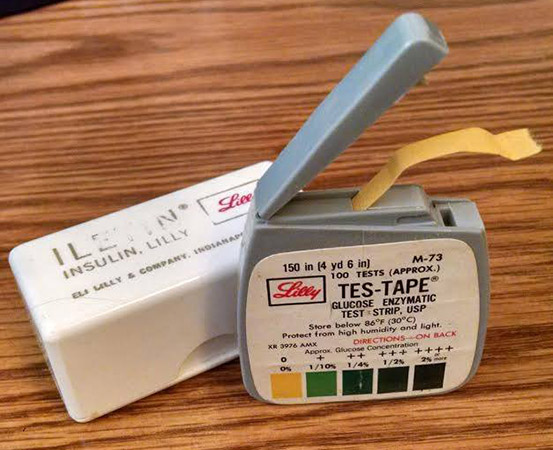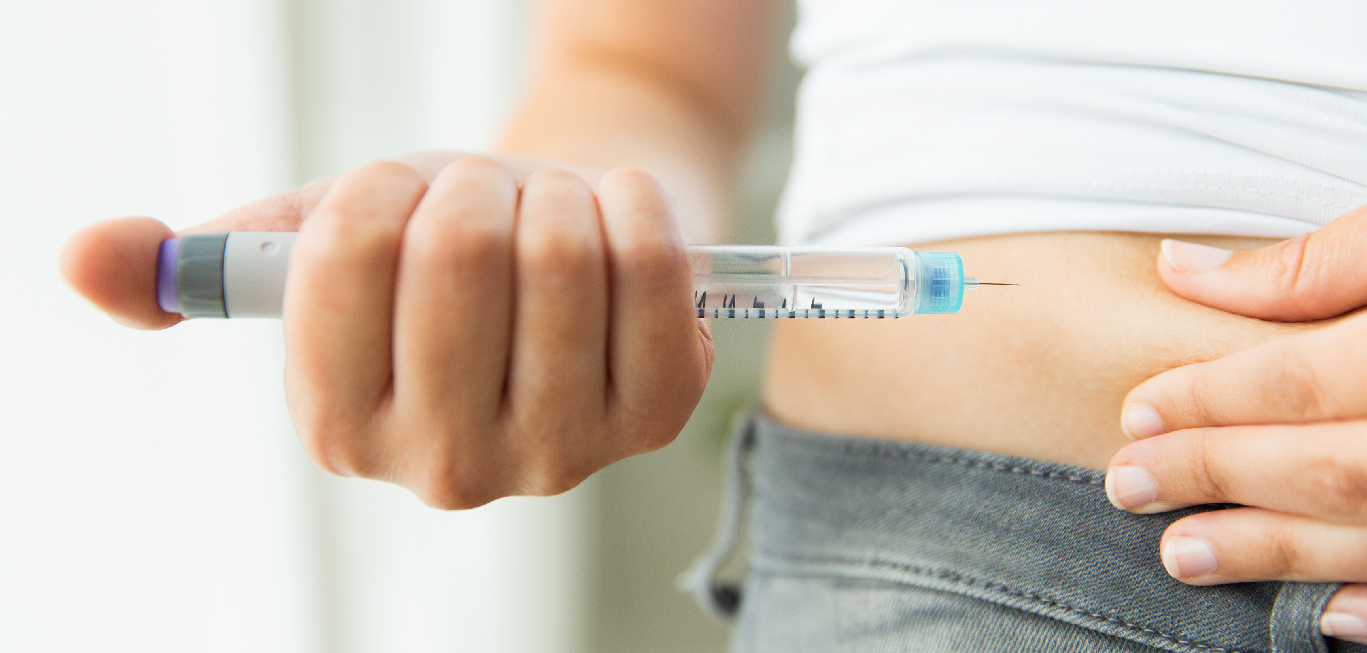
“I was diagnosed with type 1 diabetes in 1945, when I was six years old,” says Richard Vaughn, New York-based diabetes advocate and former professor of mathematics at Ulster County Community College.
It has been almost eight decades since his diagnosis, making it tempting to juxtapose his life story with the history of diabetes management itself. From the days of painful insulin injections to blood tests, glucometers, insulin pumps and smart glucose-detection gadgets, Vaughn has seen it all.
In 2010 he wrote about his life as a diabetic in Beating the Odds: 64 Years of Diabetes Health.
READ MORE :
An 82-year-old shares secrets of dealing with diabetes
Limitless: A Taylor-made story of beating diabetes
Dancing away the diabetes blues
Six important tests for people with diabetes
Diabetes diagnosis
Recalling his childhood experience, Vaughn says his parents sought medical help since he felt unwell and fatigued all the time. But diabetes awareness was minimal among the general public and even the medical community in those days.
“I was taken to four different doctors,” Vaughn tells Happiest Health. “It was only the fourth doctor who figured out that I had diabetes.” He was referred to a hospital where he was administered insulin, also called pork insulin.
At home his parents started using thick glass syringes with very long needles to give him pork insulin shots daily. “The injections were torture,” Vaughn says. “The needles and syringe were kept overnight in an alcohol-filled container. After a week, the syringe and needles were sterilised by heating them on the kitchen stove in a pan.”
Early days with type 1 diabetes
Vaughn’s earliest schoolday memory is of his mother packing candy pieces in his lunch. He also had to constantly carry a small plastic box with a few scoops of sugar during his elementary and high-school days.
Blood tests to gauge sugar levels became popular much later, in the mid-1960s.
“There were no glucose tablets back then,” he says. “My instructions were to have some sugar from the box whenever I started to feel uneasy due to low blood sugar. If it was today, then people would have thought I was doing drugs!”
Vaughn’s parents had to inform his teachers about his condition since the latter were unaware about diabetes. He also had a special prescription from his doctor that exempted him from gymnastics and other sporting activities during his school and college days. “I always had to sit on the sidelines and watch other kids play,” he says.
Vaughn graduated in maths and statistics in 1957 and went on to become a maths teacher in New York.

Type 1 diabetes: then and now
Today, blood glucose meters and continuous glucose monitoring (CGM) devices are used to test sugar levels. But until the late 1960s, urine testing was used to test the glucose level.
A person had to collect and put a few drops of their urine in a test tube, which also contained a little quantity of Benedict’s solution. After boiling this for few minutes, the colour of the solution changed depending on the amount of sugar present in the urine. The test produced a colour reaction ranging from blue to brick red and green, yellow and orange. Blue meant the urine had no sugar, while red showed a high level of sugar.
“The amount of urine sugar determined the amount of insulin I needed each day,” says Vaughn.
Type 1 diabetes and the 1980s
The arrival of finger stick glucometers (prick test kits) to measure blood glucose levels in the 1980s was the turning point in diabetes management. Finally, medical experts and diabetics both could make a more accurate diagnosis of sugar fluctuations.
“This the most important thing that happened to me as finally I could know my blood sugar level and I didn’t have to go by my intuition any more,” Vaughn says.
Today, despite having a CGM device, Vaughn uses a finger stick glucometer about four times a day to check his sugar levels. He strictly believes in using finger strips before driving his vehicle and having his meals since he feels they are slightly more accurate than the CGM device. But he agrees that insulin pumps and CGM devices have made diabetes management much easier.
Strict regimen, family support needed to fight diabetes
As part of his fitness routine, Vaughn does a 20-minute walk and also goes to the gym twice a week. He eats an average of 150gm of carbs and uses an average of 36 units of insulin each day.
Vaughn says his wife has played a huge role in his long diabetes-management journey. “My wife, Anita, learned quickly how to watch for signs of low blood sugar,” he says. “She helped me many times with that, and occasionally with bad insulin reactions at night. She still watches after me very carefully, even though my pump and CGM enable me to have good control without her attention.”
Diabetes complications
The only complication Vaughn developed during his 77 years as a diabetic was nerve damage in his legs and urinary bladder from diabetic neuropathy. He has trouble urinating on his own — since his bladder muscles have weakened due to the nerve damage — and has to use a catheter three to four times every day to urinate.
“I feel numbness in those parts of my body, and it gives me a little bit of difficulty in walking around, but I can walk without the need of cane stick or a walker,” he says.
Vaughn considers himself fortunate that diabetes has not affected his eyes or kidneys. “My heart is also still going strong,” he says. “I have weak muscles in several parts of my body, but not so weak that I can’t function and have a good life.”
In 1998, Vaughn was diagnosed with insulin resistance, possibly due to weight gain as a result of insulin shots.
Vaughn just saw a general practitioner until 2007, the year he consulted an endocrinologist. He believes a lot of diabetics don’t consult an endocrinologist initially, and as a result don’t get the advice they need.
‘Even heroes need heroes’
Today, Vaughn is actively involved with several diabetes supports groups. “I love to motivate and encourage my fellow diabetic friends, especially the parents of diabetic kids,” says Vaughn.
A role model for many people with diabetes, Vaughn says he himself needs heroes too. He recalls an event in Boston, where he met two people who had been type 1 diabetic for 85 years. “They have had type 1 diabetes for 85 years, and they are doing well,” he says. “Those were my heroes.”
In 2020, he received a Joslin medal from the Joslin Diabetes Center, Boston, for prevailing over diabetes for 75 years.
“The Joslin Center does a lot of research using insights from senior citizens living with type 1 diabetes,” he says. “They try to figure out what makes us different and [how we are] able to live with this condition as part of research to find better ways to treat diabetes in younger diabetics.”
Vaughn’s next aim is to get the 80-year Joslin medal in 2025.
Takeaways
Richard Vaughn from New York has been living with diabetes for over 77 years now. After being diagnosed with diabetes at the age of six in the 1940s, this retired professor never gave up hope but decided to adapt to his condition and adopt a healthier lifestyle, which has worked in his favour. Vaughn’s diabetes journey runs alongside the history of diabetes management, right from the days of figuring out blood sugar levels on the basis of intuition to the continuous glucose monitoring devices and fully automated insulin pumps of the present day.

















